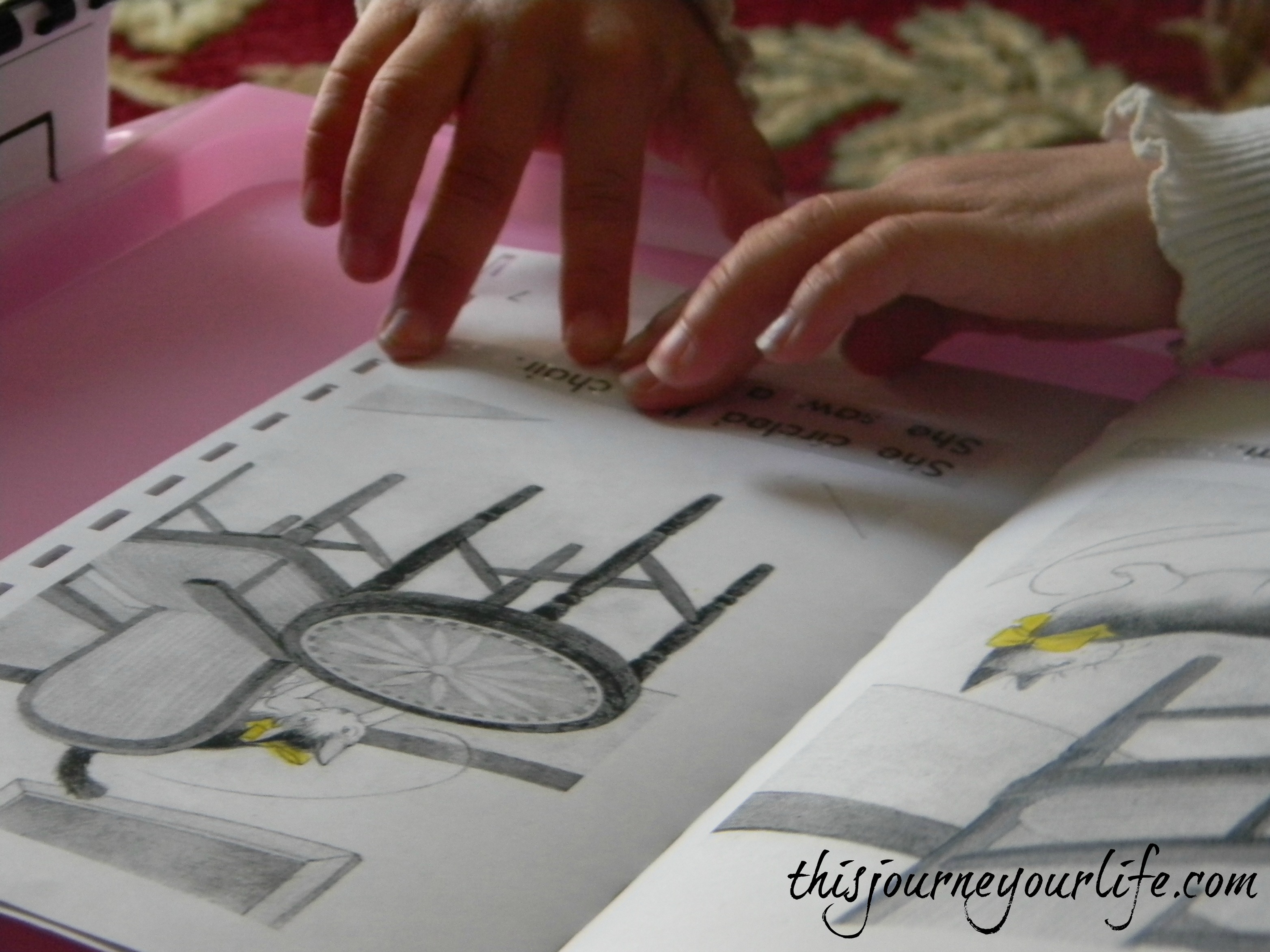Homework Survival Guide: Special Needs Edition

Homework can be a challenge for kids with special needs and their parents. But never fear, guest blogger Rachel Cordeiro is here with her Homework Survival Guide’s six tips to make study time easier for child and parent.
Homework Survival Guide: Special Needs Edition
Survival Tip #1: Preparation
During this past school year homework was a struggle for my daughter. I’m not sure who began to dread it more—Cami or me! Without fail, it was days with the most difficult start to homework that the Braille writer would become jammed while loading the paper into it. This caused an already stressful situation to escalate, and I knew something needed to change. My solution? I decided to load the paper into the Braille writer ahead of time, which cut out a lot of unnecessary stress. It was a small step that made a big difference.
I do realize some steps involved in the homework routine may help to reinforce a necessary skill, but sometimes you have to pick your battles (and I was tired of the jammed paper winning!). You will have to decide what is best for your child. Take a step back to consider which steps in your child’s homework cause unneeded stress, then prepare as necessary for the smoothest transition into homework time.
Survival Tip #2: Communication
As I already mentioned, Cami had a difficult year and we both cried many tears over the homework load. My advice? Communicate often with the teachers. Be honest about any problems you are encountering during homework, and make sure they are aware of how long it took your child to complete the assigned work. Remember, as your child’s advocate, it’s important to let the teacher know how much your child can or can’t handle.
Survival Tip #3: Adaptation
Last year in science, Cami’s class had to learn the physical states of water. There was a study sheet containing pages of facts with pictures, but the information was overwhelming for her, and she couldn’t see the illustrations. After reading it through to her several times, she was having trouble remembering it all, so I put the paper aside and tried a different approach (boiled water on the stove to illustrate water vapor, placed ice cubes in a glass of water to illustrate condensation, etc. ) to illustrate the different changes in matter.
Because Cami retains knowledge best when it’s something she has experienced, she was able to remember the different states of water much better. I made sure to send a note explaining what we had done in place of the written assignment, and her teachers accepted that (this falls right in line with communication as well).
Survival Tip #4: Concentration
Create a homework environment most appropriate for your child. Where exactly that will be may differs from child to child as long as it enables him to focus on his work. The key is to set aside a time and place dedicated to homework and be consistent in implementing that as part of the homework routine.
Survival Tip #5: Motivation
There are days when I wish I had the magic formula for motivating Cami to do homework. Other times I think I’ve discovered the greatest motivator for her, only to have it last for one week. Motivate by keeping things fresh. Make it as fun and enjoyable as possible and be flexible in your approach. The key I have found to motivating? Focus on motivation for that particular day and use a different approach tomorrow if needed.
Survival Tip #6: Relaxation
After your child has completed their homework assignment it’s a good idea to reward them for their hard work and effort. Choose a reward that you deem appropriate for them and something they can look forward to each day (this works as great motivator as well!). For Cami, her reward is to play with whatever she chooses, allowing her to enjoy much needed down time and relaxation. And don’t forget yourself…now that the homework for the day has been completed it’s time for you to relax as well….at least until tomorrow!
What Tips Would You Add to Rachel’s Survival Guide?
Did reading Rachel’s survival guide bring your favorite homework survival tips to mind? If so, share them below. Or leave a comment about which of Rachel’s tips makes life easier for you.
Do you like what you see at DifferentDream.com? You can receive more great content by subscribing to the quarterly Different Dream newsletter and signing up for the daily RSS feed delivered to your email inbox. You can sign up for the first in the pop-up box and the second at the bottom of this page.
4 Comments
Submit a Comment
Subscribe for Updates from Jolene
Related Posts
What’s Working on Your ADHD Journey?
Guest blogger Lisa Pelissier provides ADHD management tips from her own journey and asks, “What’s working on your ADHD journey?”
Enjoying the Holidays with a Food Allergy
Jolene talks about her own family’s struggles and explains her strategies for enjoying the holidays with a food allergy.
God’s Plans for our Children are Like a Puzzle
God’s plans for our children are like a puzzle larger than any Sandy Ramsey-Trayvick has ever completed. In today’s post she describes how putting together jigsaw puzzles had shown her to trust in God’s plans for her kids. I began doing jigsaw puzzles again while we...






Beth,
Thanks for sharing your ideas. The one about offering choices really resonates with me. To kids choices = a sense of control, which is one of their basic needs. Thanks for dropping by!
Jolene
I would recommend offering choices as much as possible. For example, let the student decide if she wants to do math or writing first. Perhaps have a visual (either a checklist or notecards) with each subject on it, and let the student decide the order, crossing off subjects or ordering the cards in the order in which she wants to do the tasks.
Going along with survival tip #6, I’d also suggest breaking up long nights of homework (if plausible), into more manageable chunks of time, allowing breaks when necessary.
I love the tips about communicating with teachers and making modifications. A teacher well-versed in UDL should be understanding if homework concepts are learned in a different manner.
Brian,
Thanks for those tips for older students. They are very helpful.
Jolene
For students in secondary school where there may be a large number of subjects and a substantial amount of homework there are two things that I would also include.
I would add a time scale whereby they spend a prearranged amount of time doing the most homework they can. Depending on the student this could range from 15minutes to 1hour.
As part of this time scale the could select the subject or subjects they are going to attempt to complete in this period. However, the selection of subjects should change gradually over time. This is because there may be a distinct reluctance to do some subjects. However, praise the work that is completed so it encourages their participation.
Increasing the duration of homework can be attempted by small increments of maybe five minutes after a month or so depending on the student again.
These tips work especially well for students with ASD but can also work for other special needs.